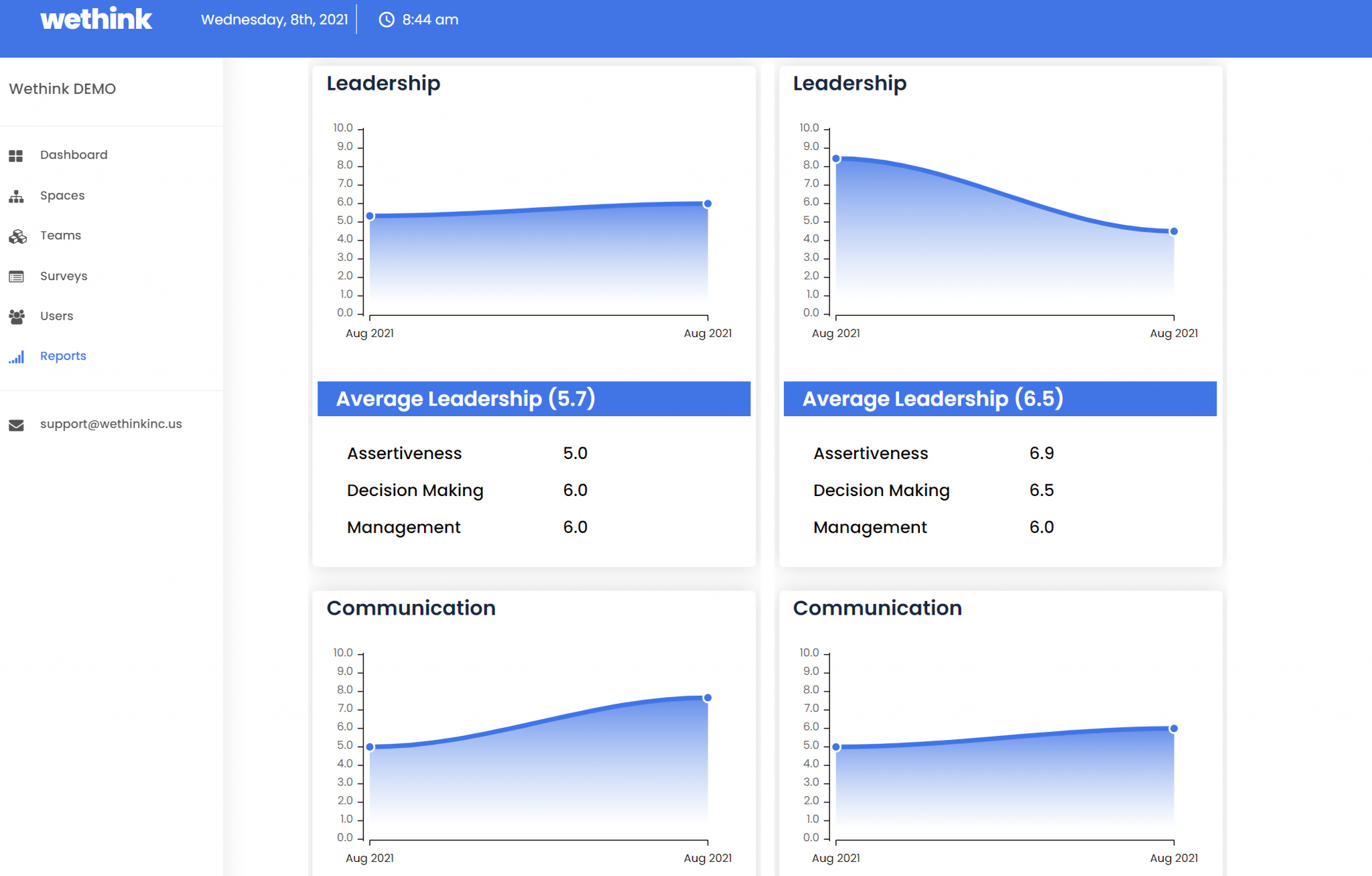The team at weThink spent years working directly with schools, coaches and players to develop programs that focused on social and emotional skill growth backed by research with the Assessment and Achievement institute at Kansas University. Team-based games and esports are the perfect environment for social skills to flourish, and Katrina Salazar’s goal is to prove skill growth to all stakeholders from parents to scholastic administrators,
and most importantly, to players.

In the summer of 2021, weThink launched the latest version of its skills tracking platform. All skills on the platform fall into five core workforce readiness skills including Teamwork, Character, Problem Solving, Leadership, and Communication. This is the first platform that can accurately measure self-awareness in regards to social skills over time. Through peer and self-evaluations, players can reflect on their skill strengths and map those strengths to specific collegiate programs based on their personal career interests.
For esports coaches and program directors, the platform is a game changer. Team rosters can be evaluated using the platform to understand player-to-player relationships and how they are impacting their performance. A well known fact is that individual talent does not equal team success, and this is especially true when using team-based video games in a competitive setting. Studies show that players with high self-awareness more than double the performance of players with low self-awareness, and finally, coaches have a way to measure this extremely valuable attribute.

Aside from the increased performance within teams, weThink skill profiles can be exported and shared with parents, administrators, in college applications, and on resumes to prove growth in the skills that matter most to employers today. LinkedIn’s 2019 Global Talent Trends study revealed that 91% of talent professionals agree that soft skills are very important to the future of recruiting and HR. Last, but certainly not least, scholastic esports programs are using the weThink platform to provide “proof of work” for educational institutions. This opens school funding budgets to support esports programs through Career and Technical Education (CTE) and Social-Emotional Learning (SEL). Not only can programs receive more funding, but some have integrated esports into their CTE programs to provide graduation credits for participating students.
While the futures of esports, education, and the workforce are ever-changing, self awareness will always remain valuable. Not only can students boast about their participation within esports, but they can prove how their experiences increased their performance in the game, at school, and in life.













